PRACTICE ORIENTED
(In no particular order)
|
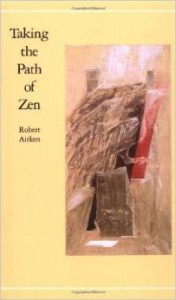
Taking the Path of Zen; Aitken, Robert. San Francisco: North Point Press, 1982.
This book is an introduction to Zen Buddhism as practiced by the Honolulu Diamond Sangha as told by Aitken Roshi, the founder of our temple. He discusses correct breathing, posture, routine, teacher-student relations, and koan study, as well as common problems and milestones encountered in the process. All participants at the Palolo Zen Temple are encouraged to read this book. It is available for purchase at the temple.
|
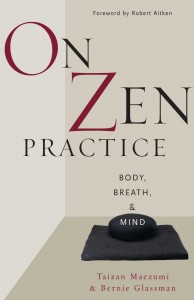
On Zen Practice: Body, Breath, Mind; Hakuyu Taizan Maezumi, Bernard Glassman, 2002, Wisdom Publications.
Conceived as an overarching primer on the practice of Zen, chapters in this volume address every aspect of practice: beginning practice, shikantaza, chanting, sesshin, working with Mu, and the nature of koans.
|
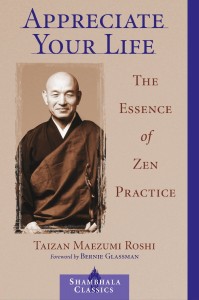
Appreciate Your Life – The Essence of Zen Practice; Taizan Maezmui Rōshi, 2001, Shambhala Publications.
These short, inspiring readings illuminate Zen practice
in simple, eloquent language.
|
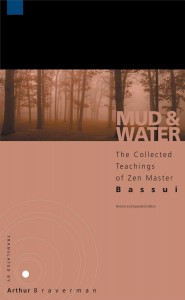
Mud and Water – A Collection of Talks by the Zen Master Bassui, Translated by Arthur Braverman, Originally published 1989 by Northpoint Press, recently re-published by Wisdom Publications.
The fourteenth-century Zen master Bassui was recognized as one of the most important Zen teachers of his time. Accessible and eloquent, these teachings cut to the heart of the great matter of Zen.
|
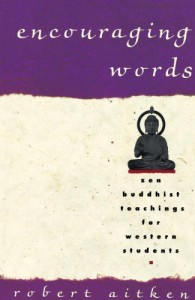
Encouraging Words – Zen Buddhist Teachings of Western Students, Robert Aitken, 1993, Pantheon
This is a collection of short talks and brief essays that Aitken Roshi has offered his students at sesshin. They are arranged according to themes — attention, emptiness, coming and going, diligence, death and the afterlife, the sacred self, and the moral path. This book is available at the temple.
|
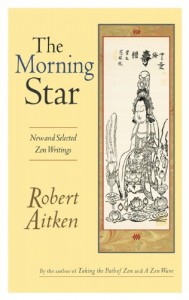
The Morning Star, Robert Aitken, 2003, Shoemaker & Hoard
The Morning Star includes writings from Aitken Roshi’s first book, A Zen Wave, and from eight collections of essays and poems published over the last three decades. This volume offers Robert Aitken’s presentation of Zen practice, addressing the Great Matter from a historical and personal perspective. This book is available at the temple.
|
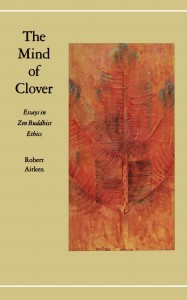
The Mind of Clover: Essays in Zen Buddhist Ethics; Aitken, Robert. San Francisco: North Point Press, 2000.
This book addresses the world beyond the zazen cushions, illuminating issues and complexities of Zen ethics. The opening chapters discuss the Ten Grave Precepts of Zen. Subsequent chapters address corporate theft and oppression, the role of women in Zen and society, abortion, nuclear war, pollution of the environment, and other concerns. This book is available at the temple.
|
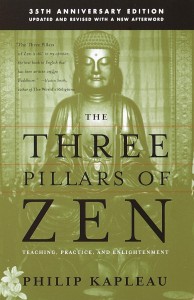
The Three Pillars of Zen: Teaching, Practice, and Enlightenment; Kapleau, Roshi Philip, ed. New York: Anchor Books, 2000
The book is a collection of texts which describe Zen Buddhism as encountered by Philip Kapleau in Japan in the 1950’s.
It includes Yasutani Roshi’s Introductory Lectures on Zen Training, his Commentary on the Koan Mu, and records of his Private Encounters With Ten Westerners (in dokusan). First-person descriptions of 20th century enlightenment (kensho) experiences are described. This book is available at the temple.
|
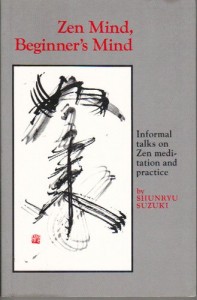
Zen Mind, Beginner’s Mind; Shunryu Suzuki Roshi (originally Weatherhill, ISBN 0-8348-0079-9,
now Shambhala, 2006)
Every page breathes with joy and simplicity. The book originated from a series of talks given by Zen Master Shunryu Suzuki to a small group in Los Altos, California. Says the author, “The world is its own magic” — a feeling that pervades the entire book.
|
TEACHINGS OF THE ANCESTORS
|
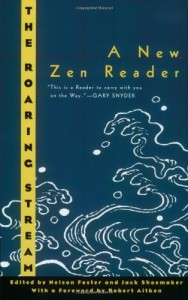
The Roaring Stream, Nelson Foster and Jack Shoemaker, 1996, Ecco Press
A groundbreaking, immensely readable anthology drawn from the vast corpus of Ch’an and Zen Buddhist literature, this book offers readers a tour through more than a millennium of writing, presenting one masterpiece after another in chronological progression. “You can dip into the waters of this stream, again and again, at any point finding refreshment and perspective, ” notes Robert Aitken in his introduction. This book is available at the temple.
|
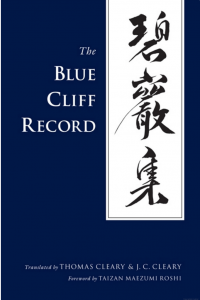
The Blue Cliff Record Translation by Thomas and J.C. Cleary, 1992, Shambhala Publications in three volumes.
A collection of 100 Zen koans accompanied by commentaries and verses compiled in the twelfth century, this work is considered one of the great treasures of Zen literature and essential study for serious students of Zen. This book is available at the temple.
|
|
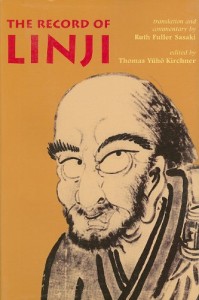
The Record of Linji, Translation & commentary by Ruth Fuller Sasaki, edited by Thomas Yūhō Kirchner, 2009 University of Hawaii Press
“The Linji lu” (Record of Linji) has been an essential text of Chinese and Japanese Zen Buddhism for nearly a thousand years. A compilation of sermons, statements, and acts attributed to the great Chinese Zen master Linji Yixuan (d. 866), it serves as central source of material for Zen koan practice. The notes, nearly six hundred in all, are almost entirely based on primary sources and thus retain their value despite the nearly forty years since their preparation.
|
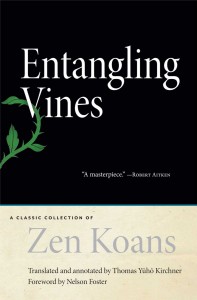
Entangling Vines, Translated and annotated by Thomas Yūhō Kirchner, 2013, Wisdom Publications
This translation of the Shumon Kattoshu is one of the few major koan texts to have been compiled in Japan rather than China. Most of the central koans of the contemporary Rinzai koan curriculum are contained in this work.
|
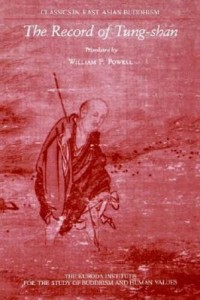
The Record of Tung-shan, Translated by William F. Powell, 1986, The Kuroda Institute
Tung-shan originated the Soto lineage which Dogen brought to Japan from China. He was regarded as the founder of the Ts’ao-tung lineage, one of the Five Houses of Ch’an.
|
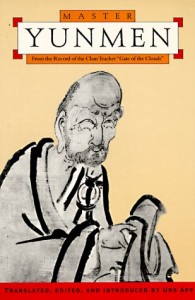
Master Yunmen: From the record of the Chan Teacher “Gate of the Clouds”, trans. by Urs App, Tokyo: Kodansha International, 1994.
This 9th century master gave birth to a fresh approach to Buddhism, eschewing traditionalist sermons in favor of straight talk, shouts, even blows. Yunmen is the most frequent protagonist in the koans that Zen students work on, even today. This is a good translation of this old work.
|
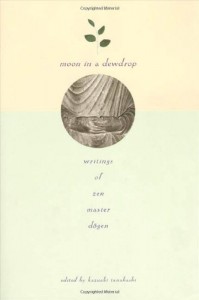
Moon in a Dewdrop – Writings of Zen Master Dōgen, Various translators, edited by Kazuaki Tanahashi, 1985, North Point Press
Kazuaki Tanahashi, collaborating with several other Zen authorities, has produced sensitive and accurate translations of Dogen’s most important texts. Moon in a Dewdrop contains the key essays of the great master, as well as extensive background materials that will help Western readers to approach this significant work.
|
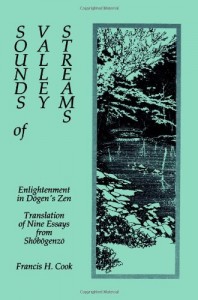
Sounds of Valley Streams – Enlightenment in Dōgen’s Zen of Dōgen’s Shōbōgenzō Essays, translated by Francis Cook, 1989 SUNY Press
It would be difficult to overestimate the importance of Dogen (1200-1253) in the history and practice of Zen. His many-levelled and multi-faceted works are essential reading for Zen students. Dr Cook rises above the intellectualizing and speculation which limits so much contemporary Zen scholarship.
|
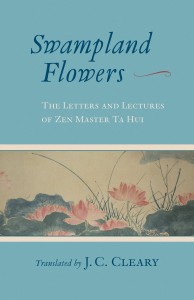
Swampland Flowers: The Letters and Lectures of Zen Master Ta Hui, J.C. Cleary, (Boston & London: Shambhala Publications, 2006)
These writings of the twelfth-century Chinese master Ta Hui are immediately accessible. This book of letters to lay practitioners and others was first issued in the 70’s and is now available again.
|
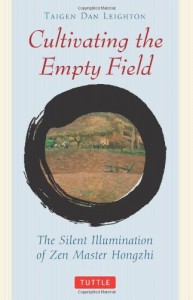
Cultivating the Empty Field – The Silent Illumination of Zen Master Hongzhi, Translated by Taigen Dan Leighton, 2000, Tuttle
First to articulate the meditation method known to contemporary Zen practitioners as shikantaza (“just sitting”), Chinese Zen master Hongzhi is one of the most influential poets in all of Zen literature. This translation of Hongzhi’s poetry is the only such volume available in English.
|
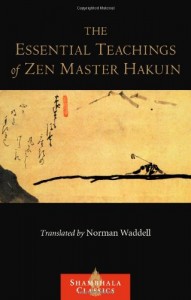
The Essential Teachings of Zen Master Hakuin, Translated by Norman Waddell, 1994, Shambhala Publications
A fiery and intensely dynamic Zen teacher and artist, Hakuin (1685–1768) is credited with almost single-handedly revitalizing Japanese Zen after three hundred years of decline. This book offers an excellent introduction to the work of this extraordinary teacher.
|
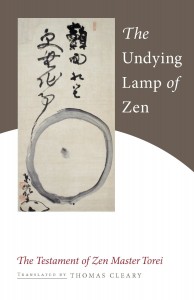
The Undying Lamp of Zen – the Testament of Zen Master Torei, Translated by Thomas Cleary, Shambhala Publications, 2010
The Undying Lamp of Zen is a distillation of Zen practice written by Torei Enji (1721-1792), a Zen master and artist. Torei is best known as one of two “genius assistants” to Hakuin Ekaku. Torei was responsible for much of the advanced work of Hakuin’s later disciples and also helped systematize Hakuin’s Zen teachings. No other English translations of this classic are available.
|
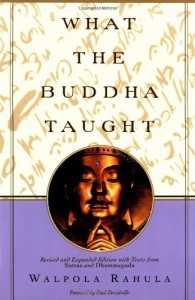
What the Buddha Taught, Walpola Rahula, New York: Grove Press, 1989
This is a comprehensive, compact, lucid, and faithful account of the Buddha’s teachings.
|
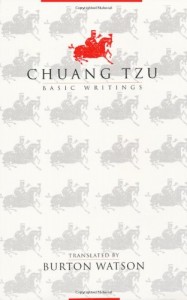
Chuang Tzu – Basic Writings, Translated by Burton Watson, 1964, Columbia University Press
Chuang Tzu (369?-286? B.C.) was a leading philosopher representing the Taoist strain in Chinese thought. Central is the belief that only by understanding Tao (the Way of Nature) and dwelling in its unity can one achieve true happiness and freedom in both life and death.
|
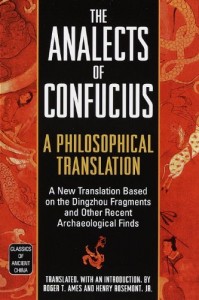
The Analects of Confucius – A Philosophical Translation, Roger T. Ames & Henry Rosemont Jr., 1998, Ballantine
Confucius is recognized as China’s first and greatest teacher, and his ideas have been the fertile soil in which the Chinese cultural tradition has flourished. Eventually, his philosophies came to dictate the standard of behavior for all of society–including the emperor himself. Based on the latest research and complete with both Chinese and English texts, this revealing translation serves as an excellent introduction to Confucian thought.
|
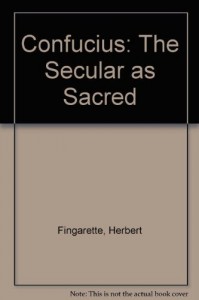
Confucius — The Secular as Sacred, Herbert Fingarette, 1972, Waveland Press (Harper Collins)
This book is an ideal way to discover the teachings of Confucius. Fingarettes’ primary aim is to help readers discover what Confucius taught, and to learn what he can teach us.
|
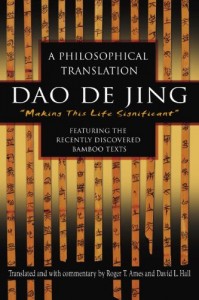
Dao De Jing – A Philosophical Translation “Making This Life Significant”, Roger T. Ames and David L. Hall, 2003, Ballantine
In this volume, Ames and Hall feature the original Chinese texts and translate them into crisp, chiseled English that reads like poetry. This new version is a compelling introduction to Daoist thought.
|
POETRY & VERSE
|
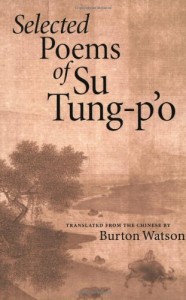
Selected Poems of Su Tung-p’o, Translated by Burton Watson, 1994, Copper Canyon Press
|
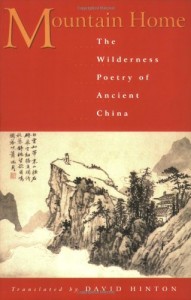
Mountain Home – The Wilderness Poetry of Ancient China, Translated by David Hinton, 2005, 1999, New Directions Books
|
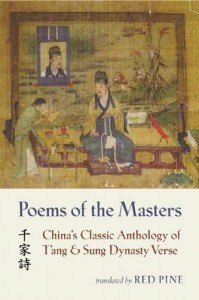
Poems of the Masters, Translated by Red Pine, Copper Canyon Press, 2003
|
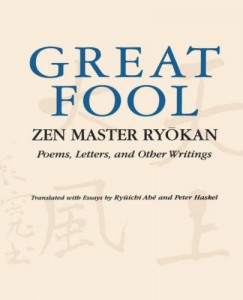
Great Fool, Zen Master Ryōkan, Poems, Letters, and Other Writings, Translated by Ryūichi Abe and Peter Haskel, 1996, UH Press
|

A Zen Wave, Bashō’s Haiku and Zen, Robert Aitken, 1978, recently republished by Shoemaker & Hoard
|
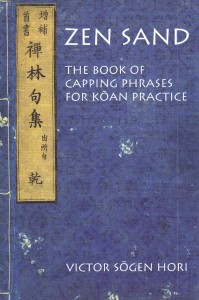
Zen Sand – The Book of Capping Phrases for Kōan Practice, Victor Sōgen Hori, 2003, UH Press
|
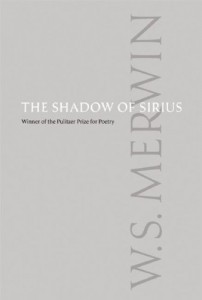
The Shadow of Sirius, W.S. Merwin, 2008, Copper Canyon Press
|
COMMENTARY, HISTORICAL, & PHILOSOPHICAL WORKS
|
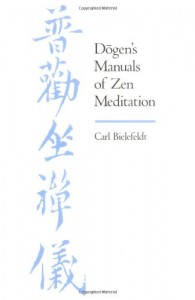
Dōgen’s Manuals of Zen Meditation, Carl Bielefeldt, 1988, University of California Press
|
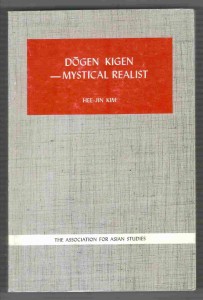
Dōgen Kigen Mystical Realist, Hee-Jin Kim, 2003, Revised third edition, Wisdom Publications
|
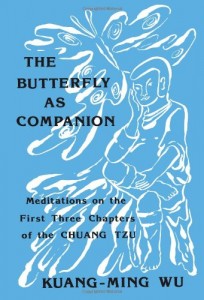
The Butterfly as Companion – Meditations on the First Three Chapters of the Chuang Tzu, Kuang-Ming Wu, 1990, SUNY Press
|
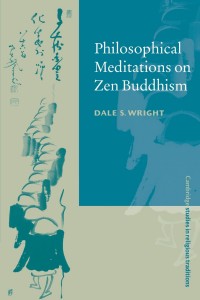
Philosophical Meditations on Zen Buddhism, Dale S. Wright, 1998, Cambridge University Press
|

Shop Class as Soulcraft – An Inquiry into the Value of Work, Matthew B. Crawford, 2009, Penguin
|
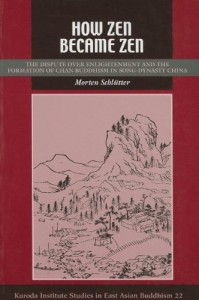
How Zen Became Zen, Morten Schlutter, 2010, UH Press
|
ON NATURE AND WILDNESS
|
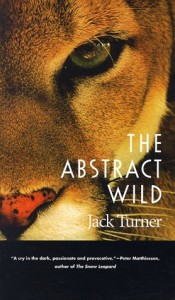
The Abstract Wild, Jack Turner, 1996, University of Arizona Press
|
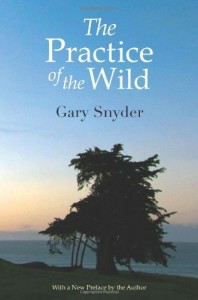
The Practice of the Wild, Gary Snyder, 1990, North Point Press
|
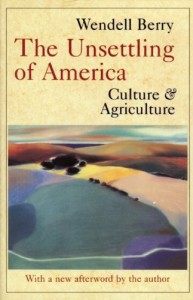
The Unsettling of America, Culture and Agriculture, Wendell Berry, 1977, Sierra Club Books
|










































